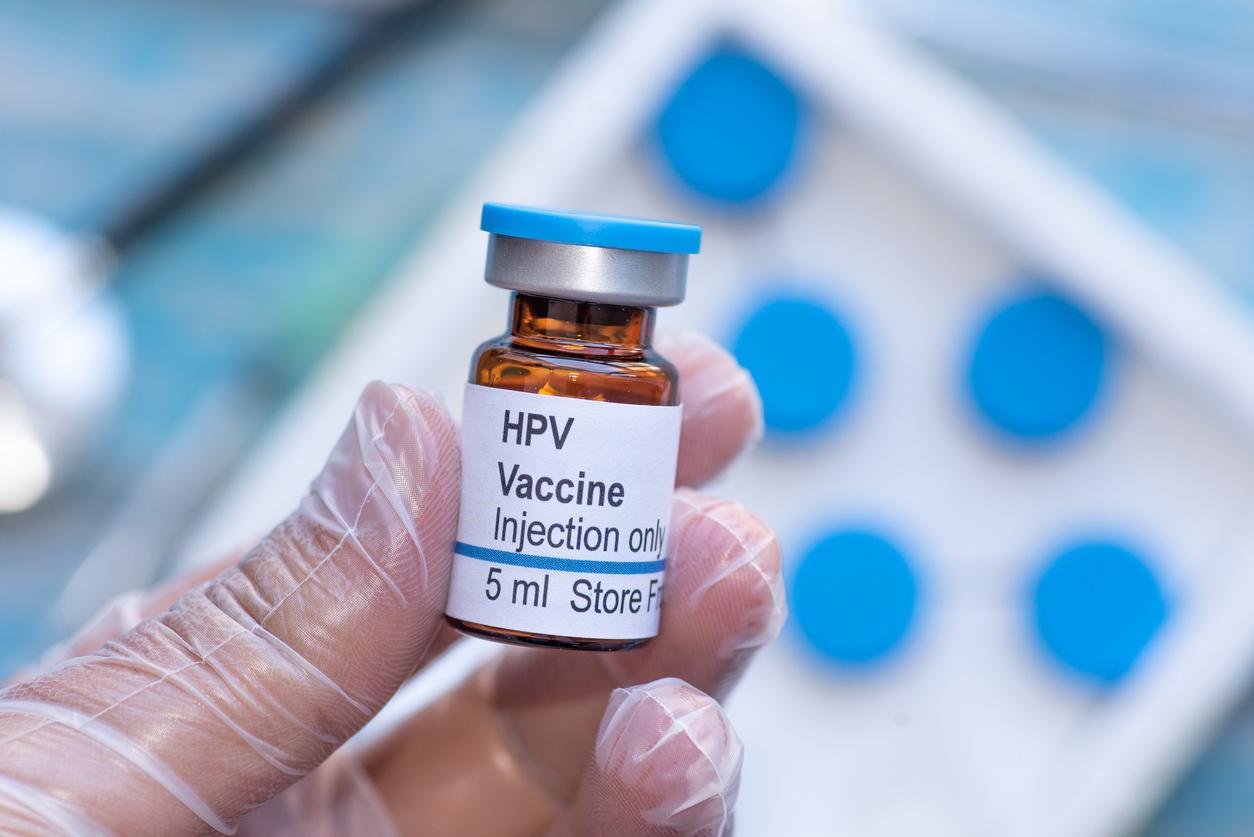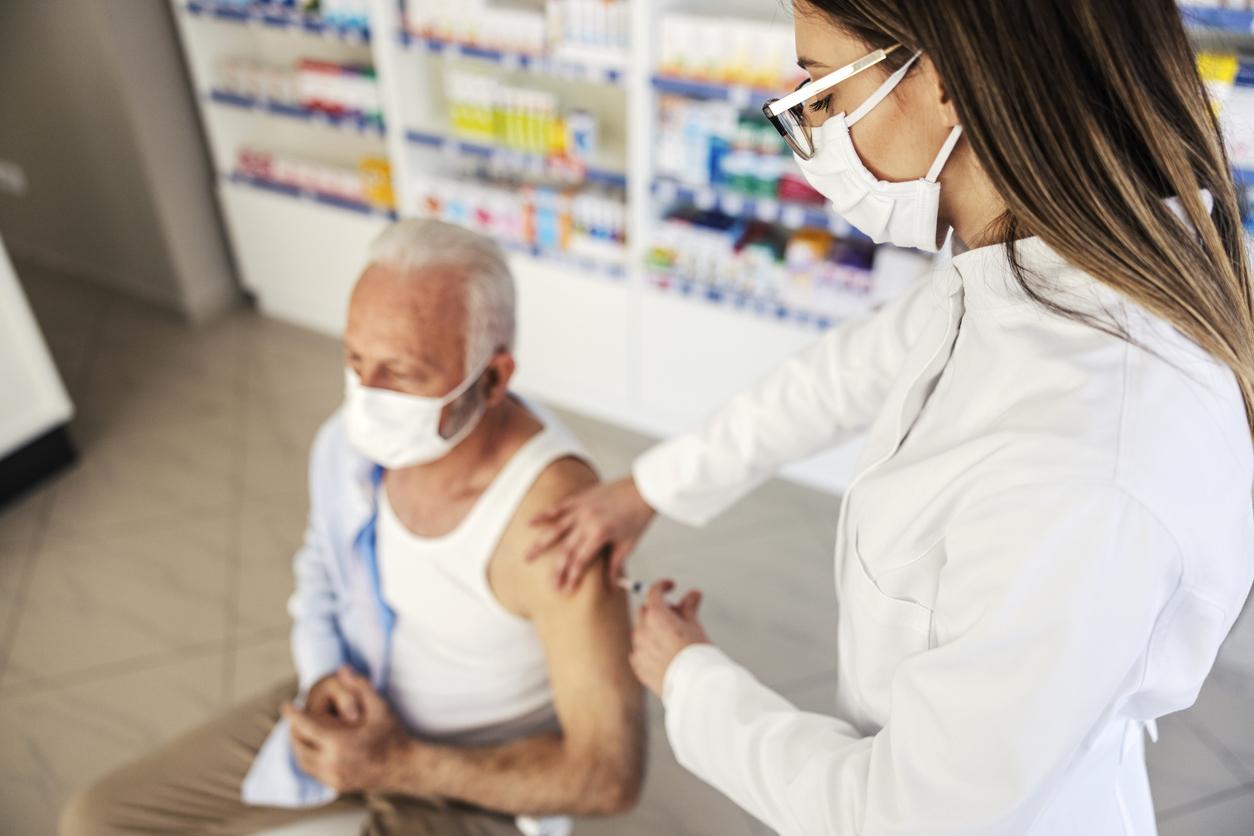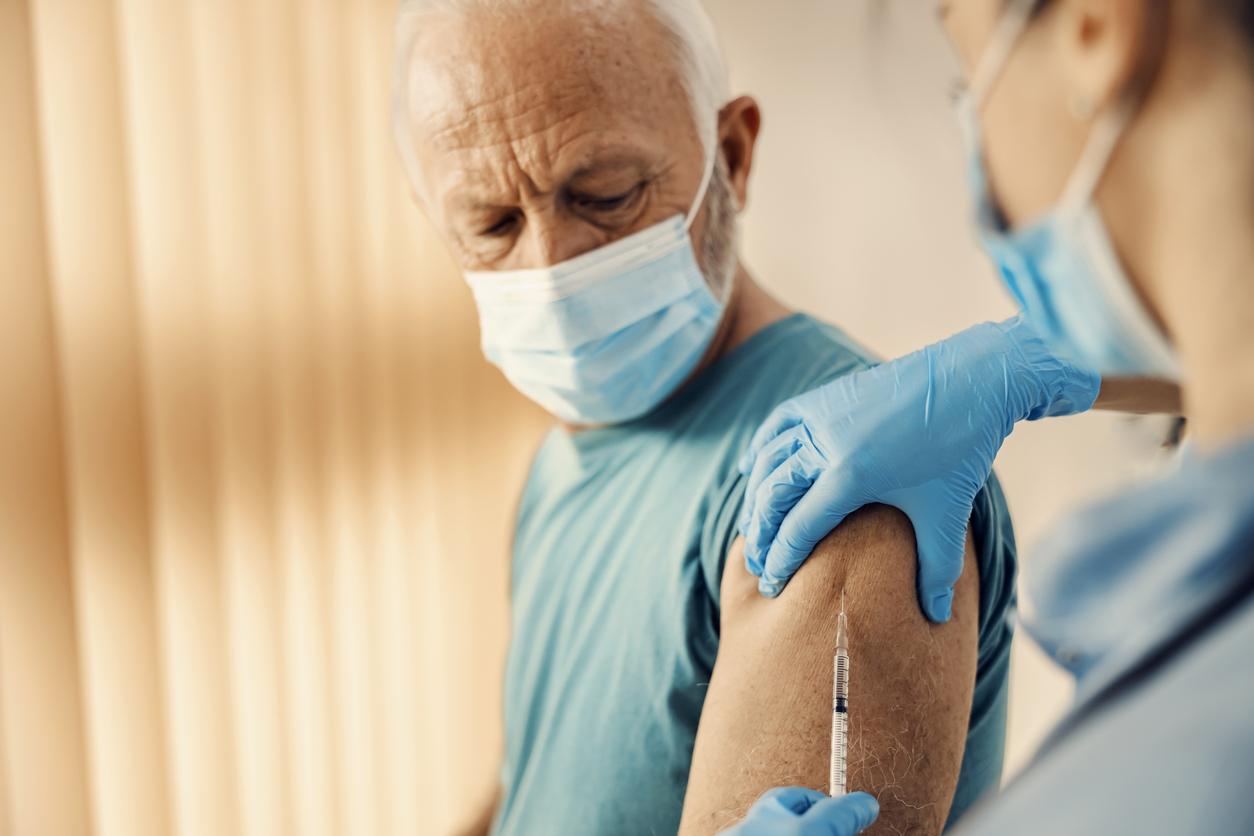If the Covid-19 epidemic has decreased sharply since the beginning of February, it now seems to be stagnating or even starting to rise again, in particular with the spread of the Omicron sub-variant, BA.2. According to the modeling of the Institut Pasteur taking into account this new variant, a new peak of cases could occur soon, however lower than that of January.
“The latest French epidemiological data available also show that it is still people aged 65 and over who remain most at risk of developing a severe form of the disease and dying : as of March 10, 2022, the over 60s thus represented 80% of patients hospitalized with Covid-19″observes the HAS, in a press release published on March 18.
In addition, the real-life efficacy data in France transmitted by the Department of Research, Studies, Evaluation and Statistics (DREES) published on March 18 confirms that people who received a booster dose are better protected than those who only received a primary seriesagainst infection, conventional and critical care hospitalizations or even against hospital deaths.
At the same time, supports the HAS, “these data and those from the United States and the United Kingdom also show that the protection conferred by the booster dose begins to decrease after 3 months in people aged 60 and over.
The HAS therefore decides on the possibility ofadminister a second booster dose for those most at risk of severe disease.
In concrete terms, this concerns the over 80s (for whom the vaccination campaign has already begun), but also 65-79 year olds “who so wish” and people who suffer from pathologies at very high risk of a severe form (trisomy 21 , severe disabilities,transplanted or kidney failure, etc.) or at least three more “classic” comorbidities (obesity, diabetes, etc.).
The HAS also recommends, in the event of a second recall, to preferably respect an interval at least 6 months with the first reminder, “so as not to reduce the adhesion of the population to vaccination by too frequent reminders”.
The decision to follow – or not – the recommendation of the HAS now rests with the government.
Recall that in its latest opinion (March 11, 2022), the Scientific Council advises “to extend the second booster vaccination to people aged 65 to 79, in particular those with risk factors”, due to “a phenomenon immunosenescence with a progressive loss of type B immunity (antibodies playing a role in infection and transmission) but also with time of type T memory and B memory immunity which are the basis of the protection against severe and serious forms”.
Note a question : the time currently planned between the two booster injections is at least three months (according to the recommendations of the Advisory Council for Vaccine Strategy led by Alain Fischer), but the HAS recommends leaving at least 6 months…
4th dose (or second booster dose): for whom? when ?
At this stage, the government recommends a second booster vaccination for over 80s and immunocompromised people.
It relies on the final opinion of the Vaccine Strategy Guidance Council (COSV), which itself justifies its position in view of the data from the DREES which show (as of January 30) an increase in admissions to hospital and critical care for people aged over 80 who have received their first booster vaccine , as opposed to the other age groups in which there is no significant signal.
“This suggests that the protection against severe forms conferred by a booster vaccine in the elderly would decrease over time. This drop in protection against severe forms could be explained by a lower diversity of antibodies generated and a less effective T response in the context of a senescent immune memory”, analyzes the COSV. Furthermore, the Israeli data show that there is indeed an additional protective effect conferred by the 4th dose. Finally, many neighboring countries have already recommended this additional dose, this is particularly the case in Germany (from the age of 70) and Sweden (from the age of 80).
Remember that the European Medicines Agency reaffirmed on February 17 that there is still “not enough evidence to recommend a second booster”.
In practice, to keep in mind: Those over 80 as well as people residing in nursing homes (4.1 million French people) will therefore be able to make an appointment again. To make an appointment, however, they will have to wait three months after the last injection. This new campaign will also be extended to “immunocompromised who were not eligible until now”, explained Jean Castex in an interview with Parisian.
The COSV thus recommends the use of mRNA vaccines (Pfizer or Moderna).
As it concerns vaccination in EHPAD, the COSV recommends using the second vaccination booster campaign to strengthen vaccination coverage for the first booster. Indeed, according to data from Public Health France, only 71.2% of EHPAD residents had received a booster vaccination on February 15, 2022, a figure significantly lower than that for the general eligible population (79.4%).
Towards a 4th dose for all?
If the government follows the advice of the Scientific Council and the HAS, the booster vaccination could concern those over 65 years old.
On the other hand, with regard to younger populations, not at risk, a 4th dose of vaccine is not indicated, by any authority.
Questioned by France Info on March 16, Olivier Véran replied that “Ith subject [d’élargir la campagne de vaccination] is not yet on the table”. “If we were to see that the rebound would last several weeks, we would ask ourselves the question. But for the moment, we have chosen to open the second booster dose to those over 80.”
Remember again that the COSV recommends not to include this second booster in the vaccination pass. “However, for reasons of traceability, it would be wise to include this second booster dose in TousAntiCovid”, he nuances.
Sources:
- Covid-19: a second reminder reserved for those most at risk, March 18, 2022.
- Vaccine Strategy Guidance Council, February 18, 2022.
- Interview Arnaud Fontanet, France Inter, March 14, 2022.
- Interview Jean Castex at Le Parisien, March 12, 2022.
- Ministry of Health press conference, January 25, 2022.
- Opportunity to implement a second booster dose, Vaccine Strategy Guidance Council, opinion of January 19, 2022.
Read also :
- Covid-19: the new isolation rules if you are in contact or positive
- I am a contact case: can I receive my 3rd dose of anti-Covid-19 vaccine?
- Variant Omicron: most common symptoms, incubation, duration

















